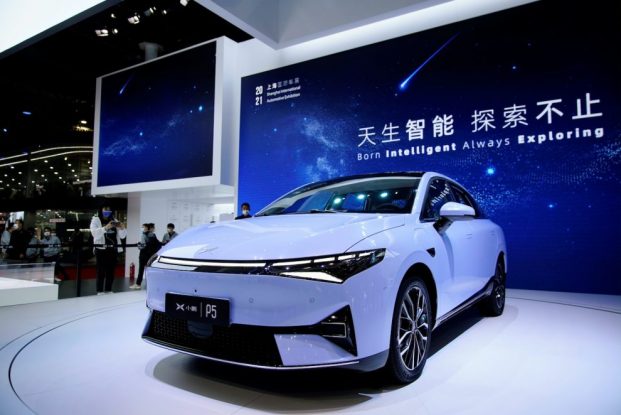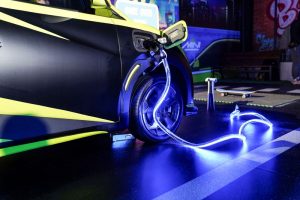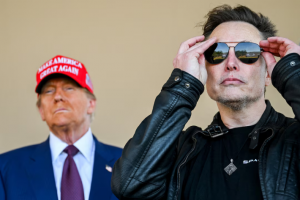Global carmakers such as General Motors and Volkswagen are falling behind Chinese electric car companies in the booming EV sector of the world’s biggest car market.
Tianna Cheng, a Beijing office worker, said her hardest choice was among Xpeng, BYD or Nio. She did not seriously consider overseas marques.
“If I was buying a petrol car, I may have considered foreign brands,” the 29-year-old said as she drove home from work. “But I wanted an EV, and other than Tesla, I saw few foreign brands applying advanced smart technology properly.”
Also on AF: China May ‘Need to Destroy’ Musk’s Starlink – SCMP
She ended up purchasing a 180,000-yuan ($27,000) Xpeng electric crossover.
Buoyed by demand from consumers like Cheng, China EV sales are rocketing in its $500 billion automotive market.
In the first four months of 2022, the number of new energy passenger cars – pure EVs and plug-in hybrids – more than doubled from a year earlier to 1.49 million cars, according to data from the China Association of Automobile Manufacturers.
Steep Rise in Demand for Chinese Electric Cars
The cleaner technologies accounted for 23% of China’s passenger car market, where overall vehicle sales fell 12%, reflecting a steep decline in demand for petrol-powered cars.
There are no foreign brands among the top 10 carmakers in the new energy vehicle (NEV) segment this year, with the notable exception of US electric pioneer Tesla in third place, according to China Passenger Car Association data.
All the rest are Chinese brands, from BYD and Wuling to Chery and Xpeng. BYD has sold about 390,000 EVs in the country this year, more than three times as many as Tesla sold there.
The top-ranked traditional carmaker is Volkswagen’s venture with FAW Group, in 15th place for EV sales.
Also on AF: China EV Upstart Hozon Auto Stuns Rivals With Sales Surge
Cheng said that overseas marques, whether the Buick Velite 7 or Volkswagen’s ID. series, failed to provide what she was looking for: an EV capable of giving her the “comfort” of having a smartphone-like experience in her vehicle.
“Foreign brands are so far from my life and lifestyle,” said Cheng, whose digital assistant handles connections to apps like Alipay and Taobao and “does everything for me from opening the windows to turning on music”.
Global Brands Had Dominated
Global brands had dominated in China since the 1990s, typically winning a collective 60-70% share of passenger car sales in recent years. In the first four months of 2022 they captured 52%, with their April monthly share at 43%.
Signalling the scale of the challenge facing traditional automakers, Nissan CEO Makoto Uchida said that some brands “could disappear in three to five years” in China.
“Local brands are becoming stronger,” said Uchida, who was formerly Nissan’s China chief, adding that the quality of EVs from Chinese makers had improved rapidly, with advances being made in the space of months.
“There will be a lot of transformation in China and we need to carefully watch the situation,” said the CEO, adding that carmakers had to be nimble in the design, development and launch of new models.
“In those aspects, if we were slow, we would be left behind.”
Bill Russo, a former Chrysler executive who now heads Shanghai-based consultancy Automobility, said global brands need to turn the situation around quickly because they controlled less than 20% of China’s only growth auto market.
Also on AF:
Guangzhou Gives China’s First Robotaxi Licence to Pony.ai
Anglo-American Puts World’s Biggest Hydrogen Truck to Work
“Chinese brands are wining the race to EVs,” said Russo, adding that consumers’ shift to cars that are essentially smartphones on four wheels appeared irreversible and that traditional carmakers were having trouble keeping up.
“I think it’s a secular shift toward hi-tech,” he said of the consumer demand for a “user-centric digital services experience” with a focus on interface, connectivity and apps.
China EVs Winning Over Younger Buyers
GM is now focused on winning over younger buyers in big cities that have hitherto largely snubbed its models, according to two people familiar with the automaker’s business in China.
The group has announced electrification plans to spend more than $35 billion globally by 2025, including more than 30 new EVs, over 20 of them in China, starting this year with the launch of the all-electric Cadillac Lyriq crossover SUV.
Volkswagen, which is spending around $55 billion globally on EVs by 2026, launched its new-generation of ID series in China early last year but missed its goal of selling 80,000 to 100,000 cars last year. It aims to sell 160,000 to 200,000 ID cars this year, though it has sold only 33,300 through April.
A key concern for foreign brands, according to one of the people close to GM plus a Volkswagen insider, is that their new EVs are being designed more for American and European markets in mind, with a heavier focus on performance and durability.
“Autobahn speeds? In most big cities in China traffic is so congested people can’t even drive above 60 km/h on most days,” said the source close to GM, who is familiar with the automaker’s product plans and product-development processes.
- Reuters, with additional editing by George Russell
READ MORE:
Stellantis Ties Up With Samsung to Build EV Battery Plant in US
Hyundai to Invest $5.4 Billion in New Georgia EV Plant
India’s EV Push to Bring Boom for Makers of Automotive Parts
























